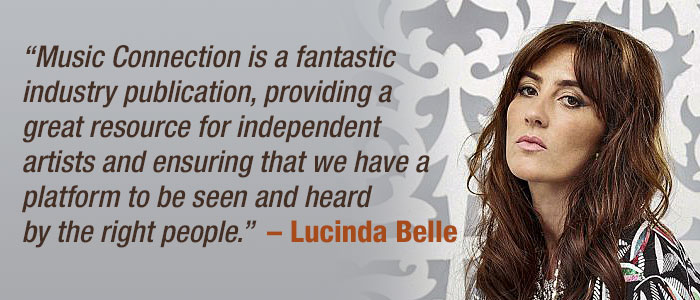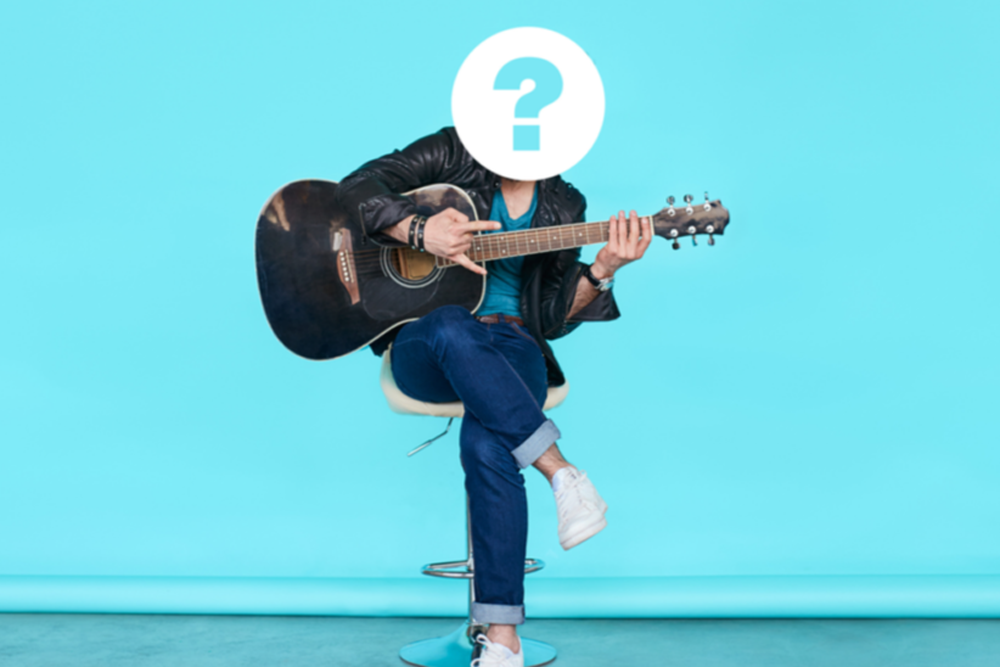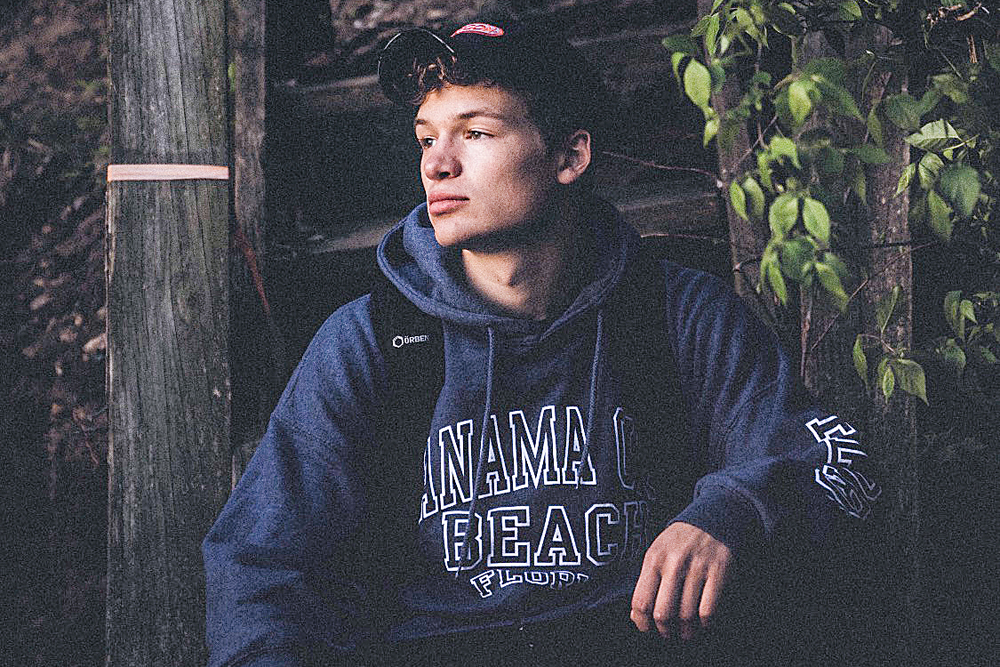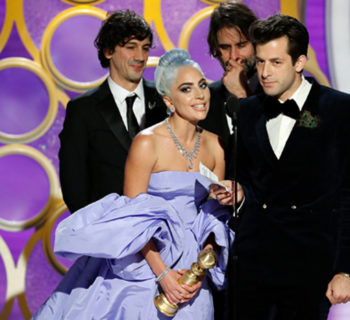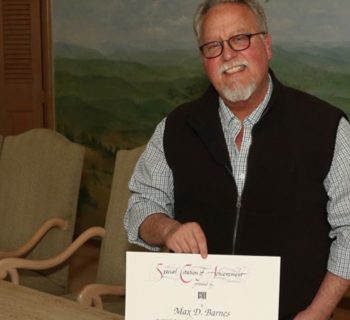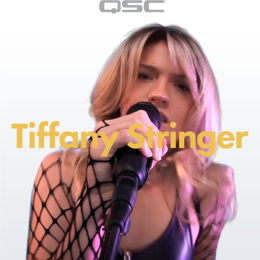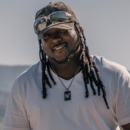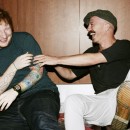At the age of 46, Jamaican dancehall artist Sean Paul has been active for 25 years, releasing seven albums and a string of singles that have helped take his music from the Jamaican underground onto mainstream stages around the world. Nearly all of those albums have seen Paul nominated for a Grammy in the reggae category, though it was the sophomore release, Dutty Rock, that took home the prize.
A year ago, Paul released his latest full-length effort, Mad Love the Prequel and, true to form, it was well-received by critics and fans. More recently, he joined forces with reggaeton artist J. Balvin on the “Contra La Pared” single. This led to the pair performing the song together during Balvin’s set at Coachella and, as a result, keeping Paul in front of a young audience. We spoke to him about all of this and more...
Music Connection: Mad Love The Prequel came out last year––have you been working on new material?
Sean Paul: Yeah, I’m always working on new material. I was in the studio until 5 a.m. last night. In the dancehall community, there are so many different artists to collaborate with, I’ve been doing some of those as well as my work which basically has more of an international flavor. Everybody who’s on the LP from last year––Dua Lipa, Becky G, Tory Lanez, Ellie Goulding, JhenО Aiko––all of those people I’d worked with from the summer before.
I released the song with J. Balvin about a month ago, so I have songs lined up with Sia to drop at some point, with Rita Ora to drop at some point. So my point is I keep working, and I have work that’s being mixed at this point. I’m looking forward to putting out a mixtape or a Dutty Rock album, which is my own production. As well as another album or EP with Island in a few––work never stops. I like what I do.
MC: You performed at Coachella with J. Balvin––how was that experience?
Paul: It was good. I’ve performed already at Coachella in 2016 with Major Lazer and a DJ called Matoma. I’ve been looking forward to getting on that stage again, and this was the right way to do the right things––promote the song and perform at Coachella. It was a good vibe. I can tell you that song, after that performance, the streaming went up and it hit platinum the week after. So we got a platinum plaque a few days later. He was invited to the Latin Billboard Awards and he invited me to perform with him because it’s one of the bigger new songs in his repertoire as well as mine. So yeah, it was a good vibe at Coachella and I’m looking forward to having my own set there one day.
I saw some artists there from the afrobeat world and also from the reggaeton world. These musics are so closely linked in terms of the vibe and the production style––it’s more drum & bass oriented. Definitely a lot of influence from dancehall and afrobeat right now and also reggaeton. It feels great to be involved with the new, but I also am looking forward to a time when I’m able to present my full dancehall set to a vast majority of people such as a Coachella audience.
MC: How much prep went into that?
Paul: I drunk a beer and I was ready. My performance at Coachella was just one song, so it was an easy process for me. With J. Balvin, he had a whole set where he had to present a big thing. It was his show, which I was invited to.
MC: Did you do both weekends?
Paul: Last time, I did both weekends. This year, I only did the first weekend. Reason being, it all happened a little late and I had my own booking for Kaya Fest in Miami, a 4/20 concert. I was obligated to go and do that and I couldn’t do Coachella weekend 2.
MC: How did the single with J. Balvin
come about?
 Paul: It came about from me wanting to work with J for quite some time. He’s in the reggaeton community, but he has always shown me a lot of respect and he has also shown a lot of knowledge of my culture, which is important for me. I’ve wanted to work with his producer, so I went into the session with a bunch of different Latin writers and producers so I could interject some Spanish into my song. I’ve done this before with songs like “Hold My Hand” and “Punkie.” “Punkie” was from 2002, “Hold My Hand” was 2009. Those songs were English songs at that time, or Jamaican patois, but I had them translated with someone in the studio. So I’ve done that before and I did that to reach out to my Latin audience, which has shown me a lot of love from the beginning of my career.
Paul: It came about from me wanting to work with J for quite some time. He’s in the reggaeton community, but he has always shown me a lot of respect and he has also shown a lot of knowledge of my culture, which is important for me. I’ve wanted to work with his producer, so I went into the session with a bunch of different Latin writers and producers so I could interject some Spanish into my song. I’ve done this before with songs like “Hold My Hand” and “Punkie.” “Punkie” was from 2002, “Hold My Hand” was 2009. Those songs were English songs at that time, or Jamaican patois, but I had them translated with someone in the studio. So I’ve done that before and I did that to reach out to my Latin audience, which has shown me a lot of love from the beginning of my career.
From the first couple of years of me going to New York City every week and writing songs, I realized that a lot of my audience was Latin people. I do not speak the language, but I had someone coach me through it. This time around, I wanted to have a lot more options, and I wanted it to be half English, half Spanish. When I heard this track, I immediately wanted to send it to J. He got straight back to me. It was a good choice because there are times when I feel an artist for a song and then I send it to them and they don’t really feel it for whatever reason. All the stars fell in line this time. The demo was done just before Christmas, and then we started to mix, getting the video ready and stuff like that.
MC: Who else have you been listening
to lately?
Paul: J’s introduced me to a couple of artists. Anitta, from Brazil. We’ve been talking about doing some stuff. We have a song together that’s finished, but I’m not sure about the process of where it’s going to come out.
Becky G introduced me to people like Natti Natasha and so we were talking about doing something, but nothing has come to fruition yet. So it’s setting up to be a few Latin songs here and there. I’ve been considering a Latin LP. I was testing the water with this one, and this one has really become something big and feels very good. Possibly more songs coming.
I have done a song with Mozart La Para. We also have another song, his own, which should be out.
Other than that, I’m checking out a lot of what’s happening in the dancehall scene in Jamaica. I produced “Gang Gang” earlier this year. In Jamaica we do “juggling” in dancehall, which means one rhythm with a few different acts and a couple of different people. They sing their own songs, it’s not one long song with all those people in it. So that was a juggling production that I put out this year.
We also put out another one called “Callaloo.” Callaloo is a vegetable like collard greens. We called it that because one of the songs on there is talking about callaloo as in money, green.
The song that I did with Sia is produced with TiСsto. I’m in a very good position right now in terms of being able to reach out to the Latin community, reach out to the hip-hop community and my own dancehall community, and get work done. I’m in a position where a lot of people want to work with me, which is a great thing. I’m looking forward to touring this year.
MC: You’ve worked with Sia and also Little Mix—do you enjoy those pop collabs?
Paul: I definitely do enjoy them. It helps me to keep a younger pop audience. A song like “Get Busy” went to number 15 in the “popular” Billboard charts. After being popular that time and then a few years later not being so popular, I try to keep my younger audience. Any opportunity that presented itself and I thought it was a good song, I would jump up and do.
As I said before, dancehall has become a [type of] pop music. I won an American Music Award in 2006 for Best Pop Artist over Justin Timberlake and Kanye West. That was a very big indication for me that I need to keep that audience connected to what I was doing. A lot of pop artists nowadays, such as Rihanna and even Drake, they started to do music that reflects a lot of influence of what dancehall has given to the world. That’s a proud moment in time, in terms of a lot of people are turning their heads and saying, “How come everything sounds like this?” That’s the influence of dancehall.
MC: Was it fun to work with Sia and Little Mix, and also Simple Plan?
Paul: I didn’t really meet Little Mix until after we had done the song. Simple Plan––same thing. I met all of those people online. I did a song called “Rockabye” [with Clean Bandit]. There are some people who I work with straight, but a lot more is done over the Internet. I like it when we’re in the same room. I’ve done lots of collabs over the Internet, but it always feels better when you’re in the same room.
MC: Your son was born in 2017––how did that change things for you?
Paul: Less sleep. I try to keep in the studio because it’s cooler––Jamaica is a hot country. Also, there are less people around at night. I go to studios and there are a lot of people who want my attention or they want me to produce them, or they want me to sing with them. It’s just a lot. It would be overwhelming to me and my fans if I did it all. At night, it’s a better vibe for me.
The boss is my son now. So when the boss is like, “Yo, get up” at 6 a.m. even if I came in at 4, I’m getting up. I’m on tour a lot, so I don’t spend a lot of time at home. So when I am at home, I like to spend a lot of time with him. Just this past weekend, there was a big carnival weekend in Jamaica––35 parties in that one weekend—but I didn’t do any of them because I wanted to spend time with my son. I just want to be a good dad. It has changed me in that respect—my focus has changed but not musically. I have been writing one or two more meaningful songs, but mostly it’s been the same type of thing.
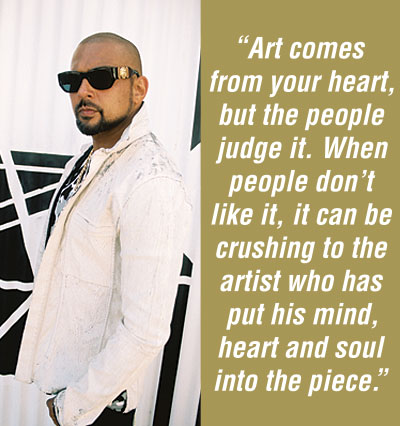 MC: What’s the best career advice you’ve been given?
MC: What’s the best career advice you’ve been given?
Paul: One was from my mom and one from a friend in Jamaica. They both said the same thing—art comes from your heart, but the people judge it. When people don’t like it, it can be crushing to the artist who has put his mind, heart and soul into the piece. If people disrespect your efforts, it can be crushing. It really prepared me and helped me to last this long because there have been lulls in my career and times when it would seemingly be, to a younger audience, like my time was over. That advice has always helped me to put my head back into gear, be humble, and just work hard at what I’m doing. You have to have thick skin in this business. Don’t have feelings when it comes to what people think.
MC: And the worst advice?
Paul: I get bad advice every day. There was one time—it’s a little silly one, but it was bad advice. I was on a red carpet, and I don’t like changing and wearing these red carpet clothes, one for a performance and another after. I was on a red carpet in Scotland for the MTV Music Awards. The stylist had convinced me to wear a kind of an army-style kilt. She said it would be dope. But all of the reviews were like, “What the fuck’s he got on?”
MC: How do you think your crowds have changed over the years?
Paul: Staying in pop has helped me to have younger audiences. I’m growing older, but the same party people of 19 to 25 are coming to the concerts. That’s great for me—I’m a very physical performer in terms of I run up and down, jump, scream at the audience, get them involved to the point where they feel like they’re on the stage and jumping alongside me. They get a lot of energy from what I put out.
The older crowd, the people my age, they’re not able. They can’t jump as long or whatever. The crowds keep me young, but also, I have fans that are my mom’s age, and fans that are my niece’s age. That’s a brilliant position for me to be in.
MC: What’s next for you?
Paul: One of the artists that I was talking about for my production was Chi Ching Ching, and I actually released an album for him last year. That’s called Turning Tables and it’s been doing pretty well. He’s an artist that, in Jamaica, people know him for his dance moves and charismatic and jovial attitude. He brings a lot of good vibes to people. But this album has some songs that really surprised people as well. A few more meaningful songs and not just dance moves songs, which shows growth.
Contact cheyenne.beam@umusic.com
